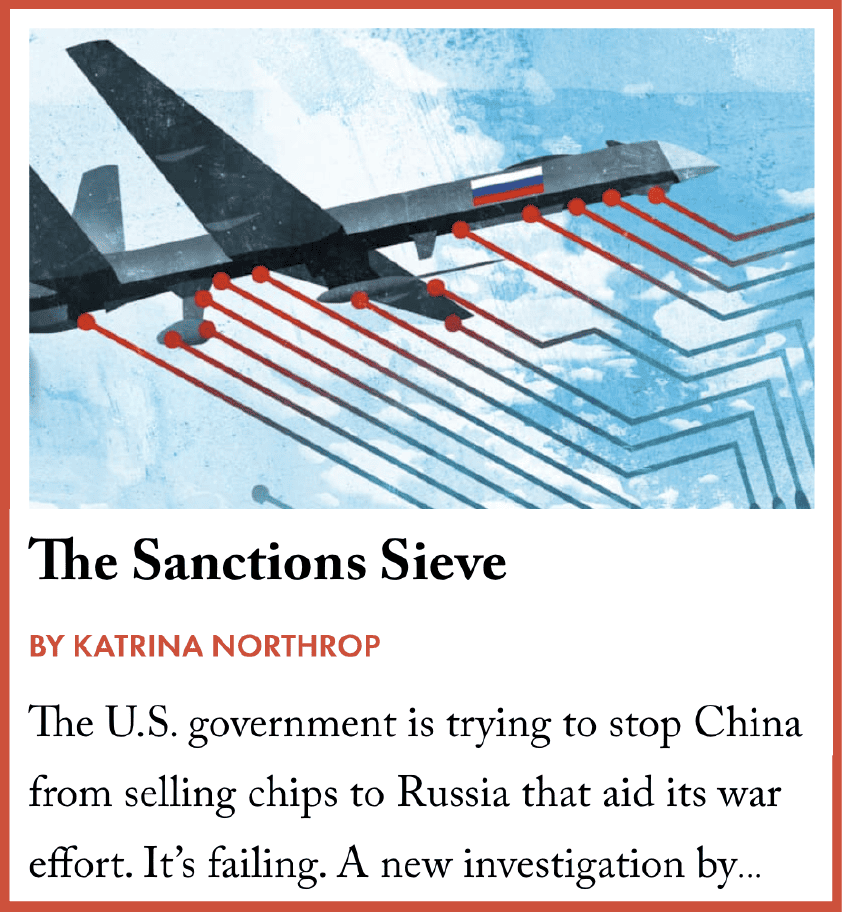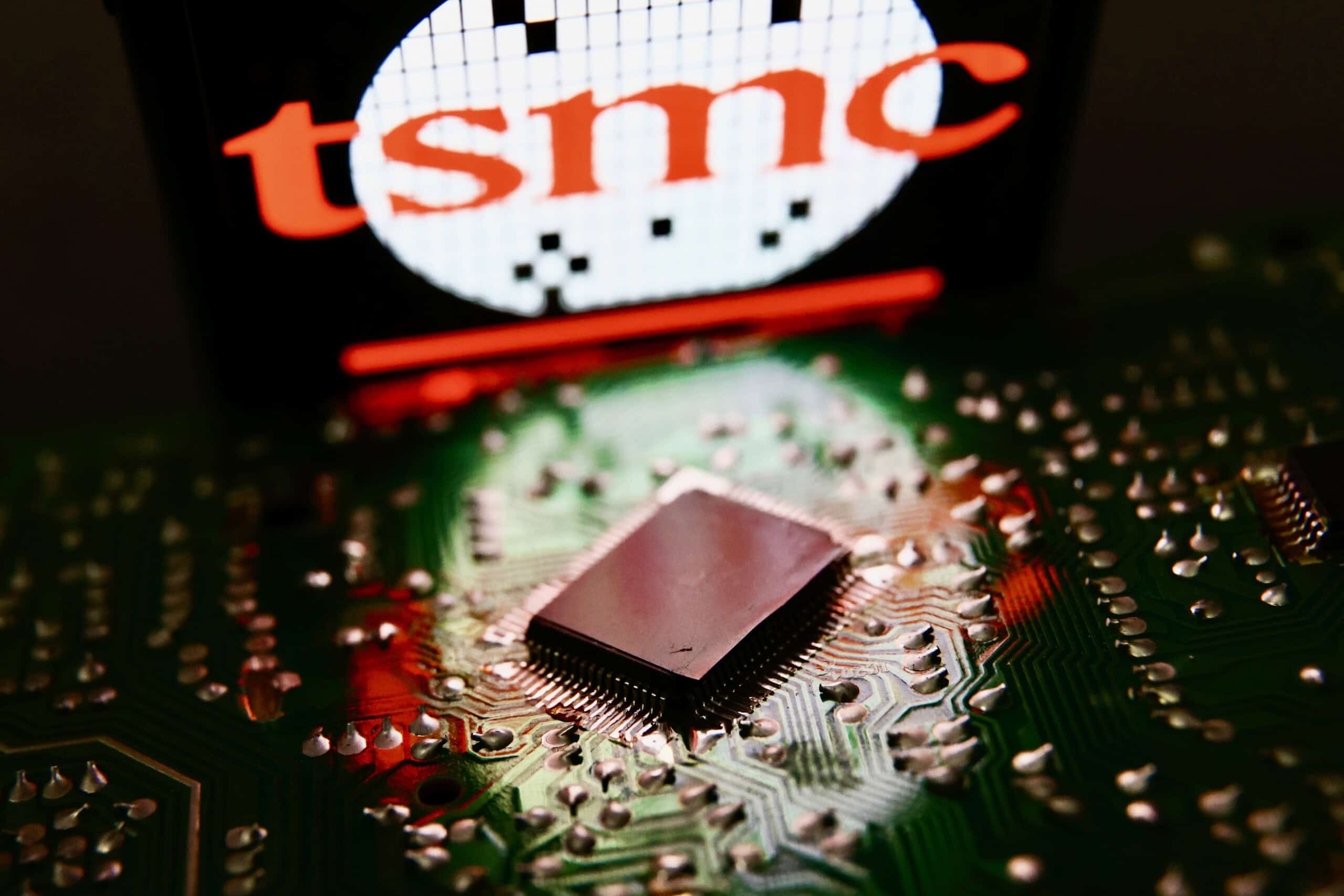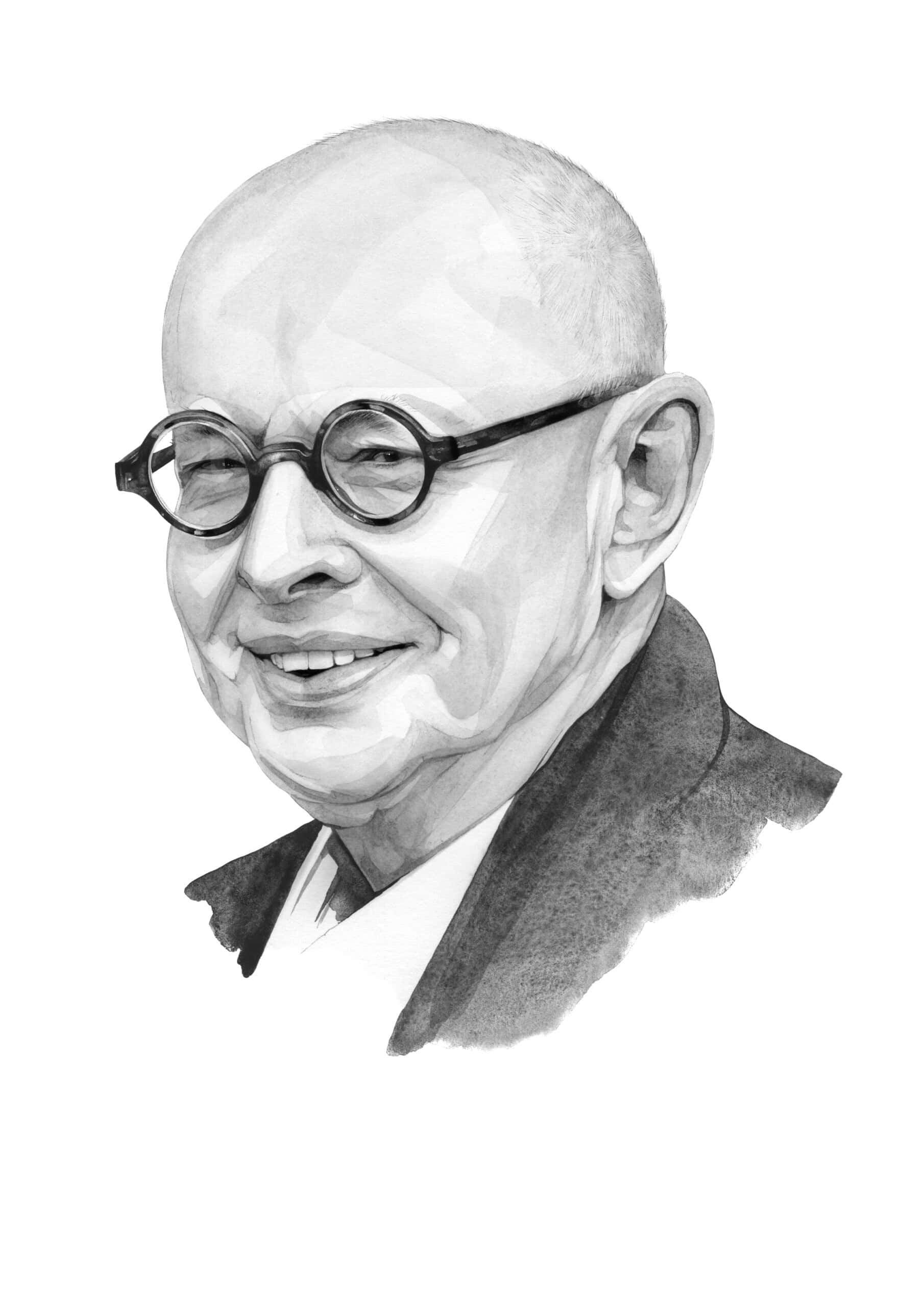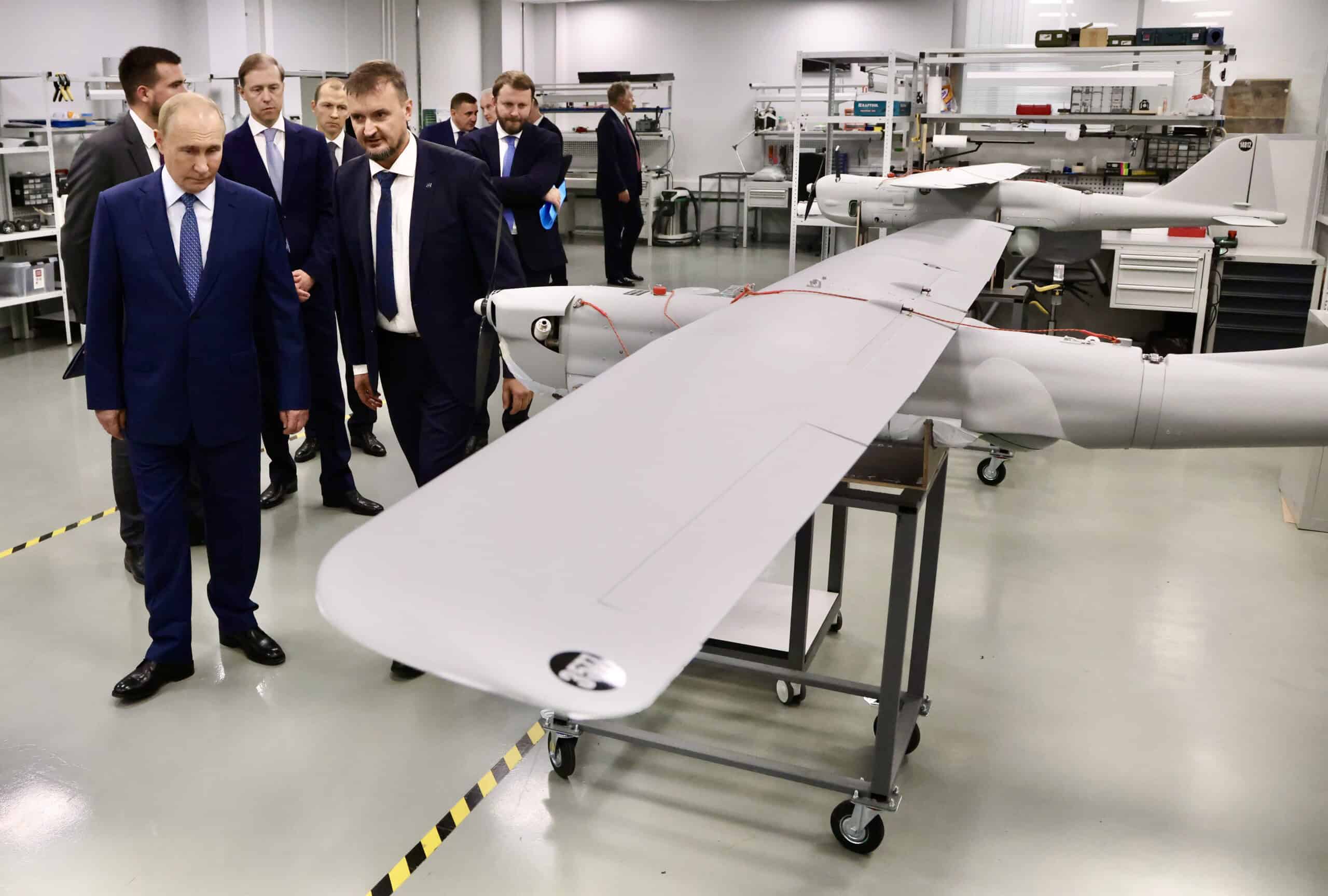
Concern about China’s role in supporting Russia’s invasion of Ukraine deepened last week as the U.S. government for the first time sanctioned two Chinese companies for “directly developing and producing complete weapons systems in partnership with Russian firms.”
The restrictions came on the heels of a Reuters report that said Russia was relying on Chinese-made drones, as well as data showing that Russia’s use of drones in Ukraine spiked in September.
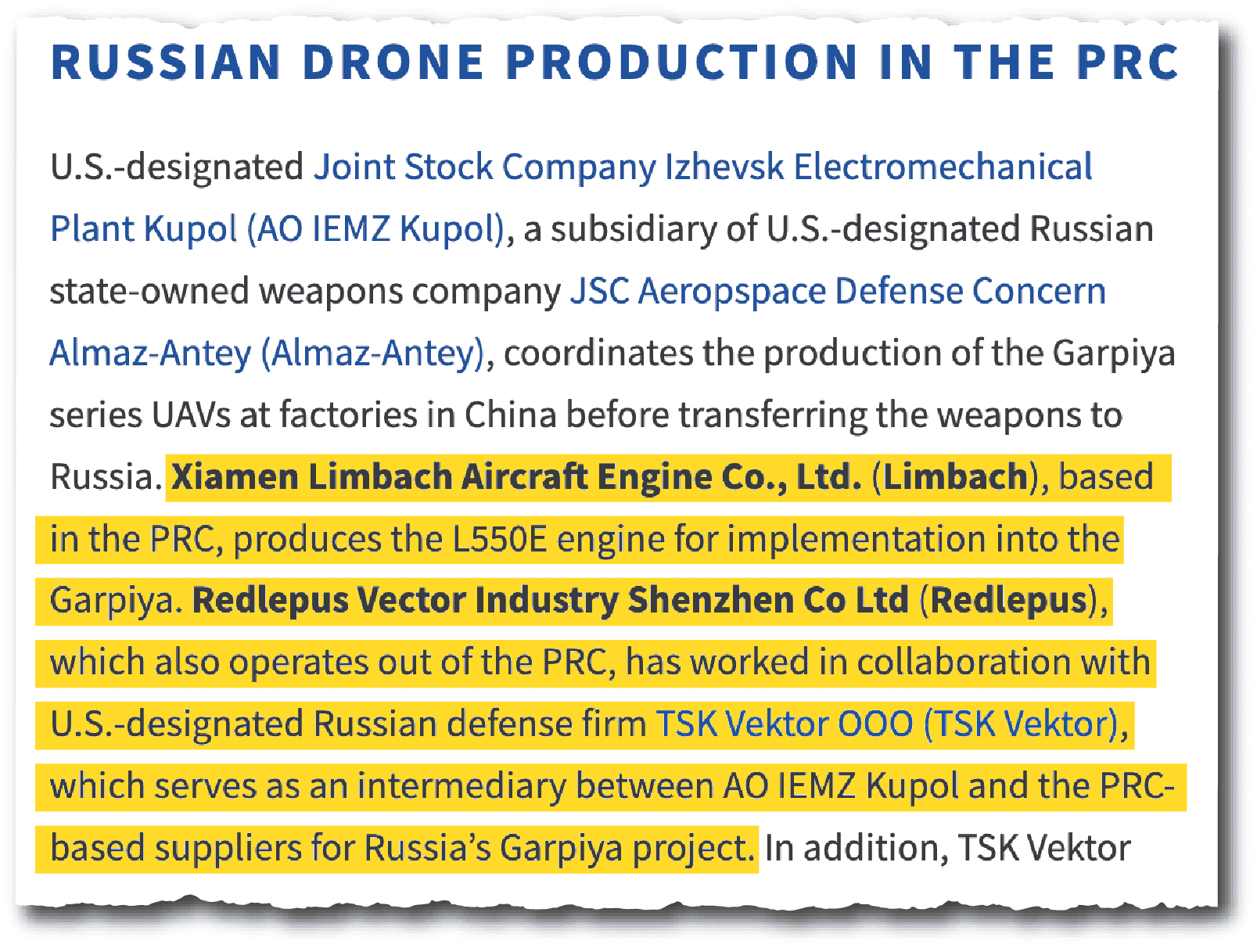
But what was not clear from the sanctions is that one of the companies involved has close links to Germany, a U.S. ally and fervent backer of Ukraine, raising further questions about how China may be using technology developed by Ukraine’s supporters to fuel the Russian war machine.
According to the U.S. Treasury, both Xiamen Limbach Aircraft Engine Co., Ltd and Redlepus Vector Industry Shenzhen Co Ltd have helped facilitate the supply of parts for the Garpiya, a long-range attack drone that the U.S. says Russia has used to destroy Ukrainian civilian and military infrastructure.
Xiamen Limbach, which makes engines for the Garpiya drone, is a 94-percent-owned subsidiary of Fujian Delong Aviation Technology Company Limited, data from Wirescreen shows. In December 2011, a man named Shuide Chen, who was described in German-language news reports at the time as German-Chinese, fully acquired Limbach Flugmotoren GmbH, a German company which makes piston engines for drones and other aircraft. Five years later, he transferred the company’s ownership to Delong Aviation, according to documents filed with the North Rhine-Westphalia district court.
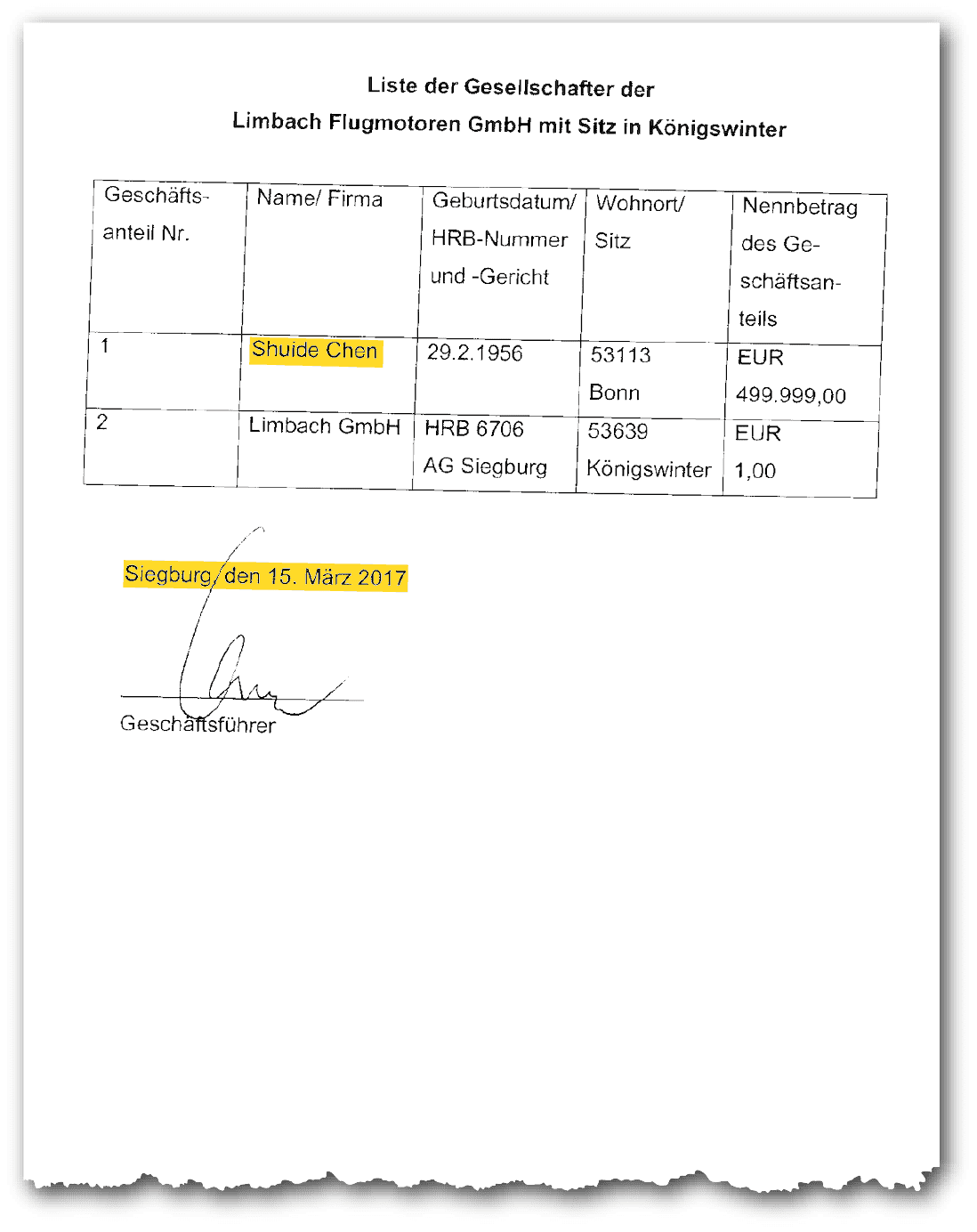
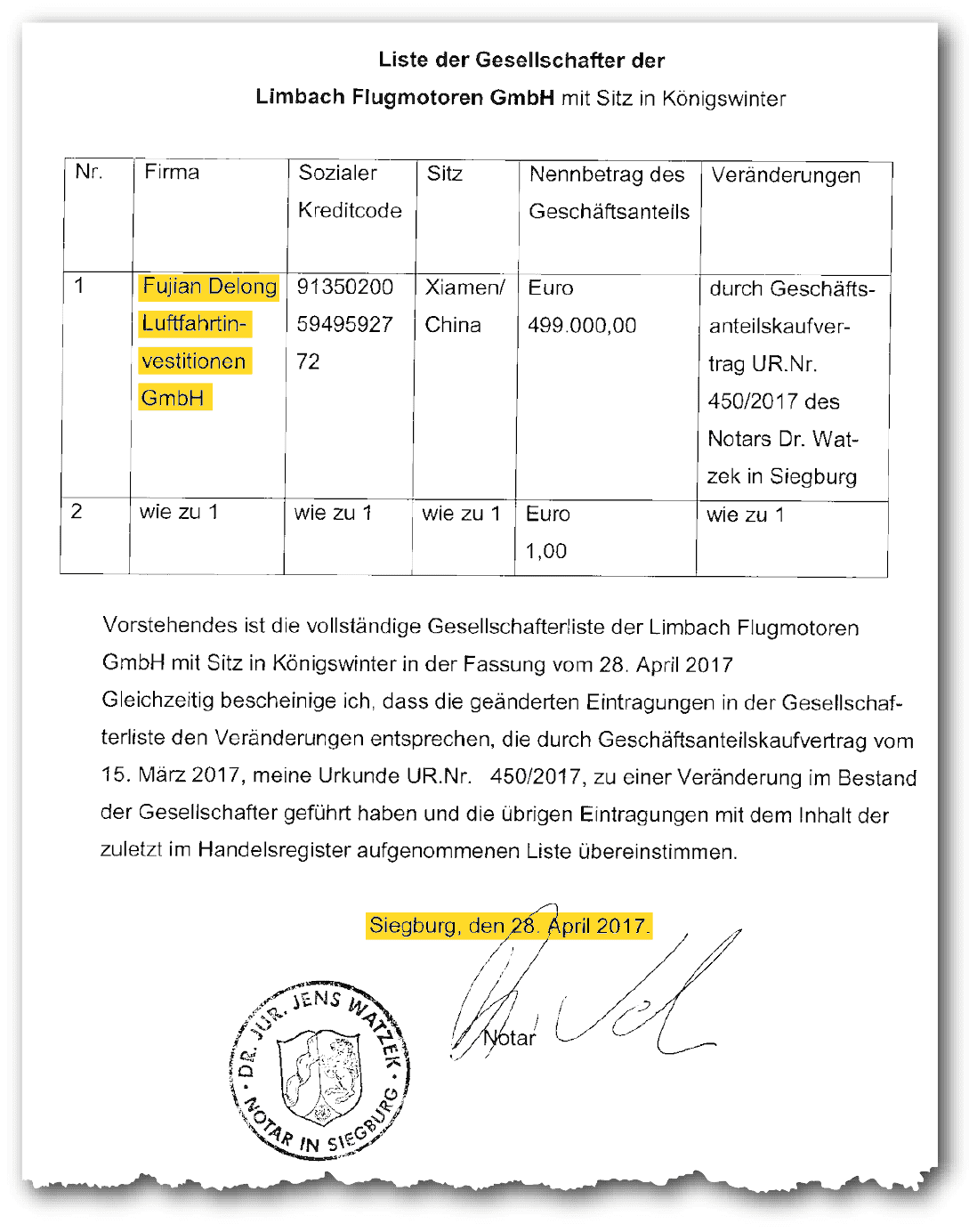
Left: A court filing dated March 15, 2017, shows Shuide Chen as Limbach Flugmotoren’s primary shareholder. Right: A court filing dated April 28, 2017, has Delong Aviation as Limbach Flugmotoren’s primary shareholder. Source: Common Register Portal of the German Federal States
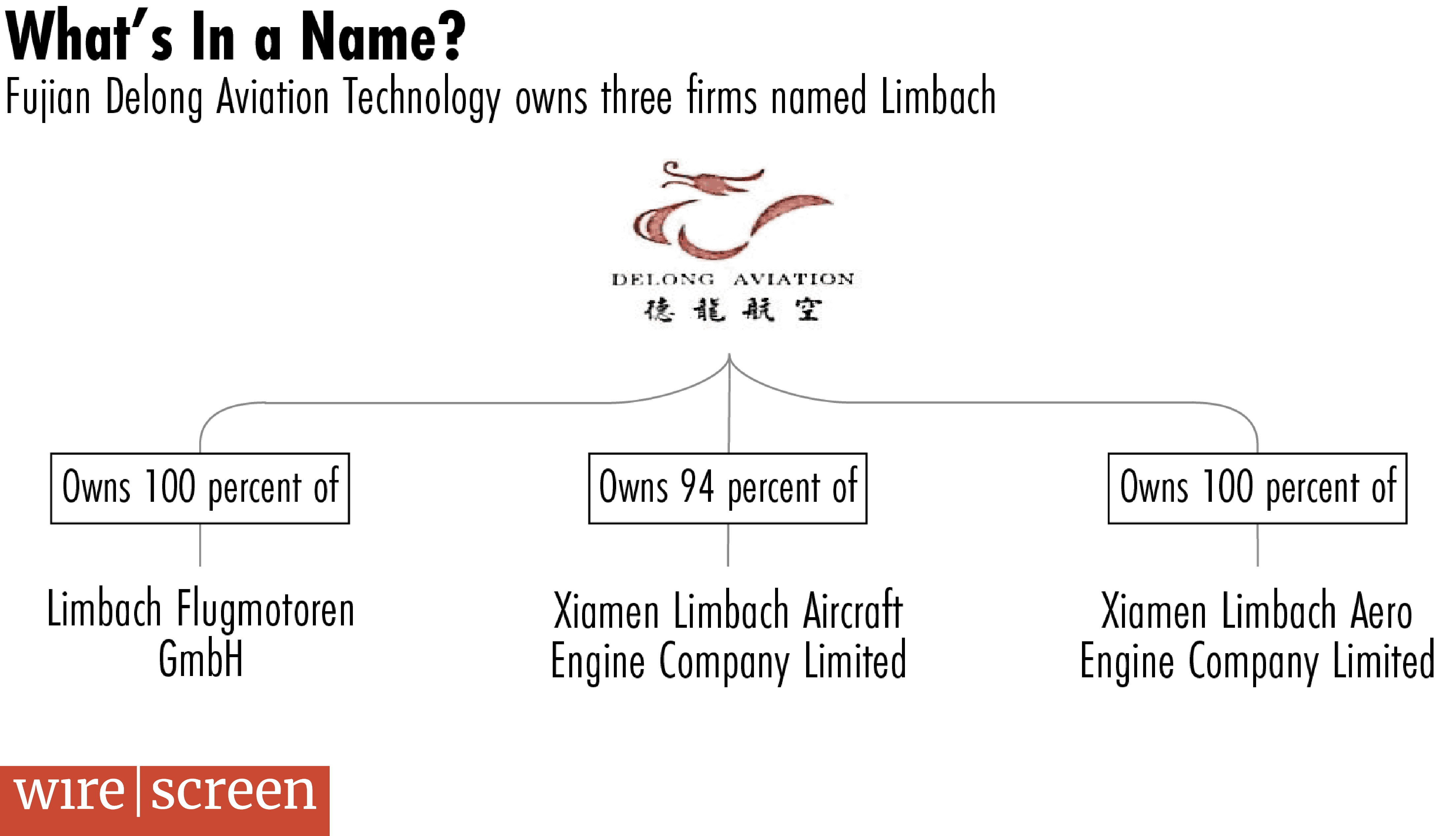
At the time, the Limbach Flugmotoren deal and others like it raised few alarms.
“For Germany, this was the beginning of a period of intensifying economic relations with China that were encouraged by the political establishment,” says Noah Barkin, a senior advisor with the Rhodium Group. “Even acquisitions of strategically sensitive assets were nodded through without second thoughts.”
The logic is don’t rock the boat with the Chinese when we’re already in trouble with the Russians. What they’re trying to do is close their eyes and make the problem go away.
Janka Oertel, director of the Asia program at the European Council on Foreign Relations in Berlin
But thirteen years on, Xiamen Limbach is developing the same type of engines as those produced by Limbach Flugmotoren, and then selling them to IEMZ Kupol, a subsidiary of Russian-state owned weapons firm Almaz-Antey, the U.S. Treasury statement says. In announcing its sanctions, the Treasury also said that Xiamen Limbach “produces the L550E engine for implementation into the Garpiya [drone]” at factories in China. Limbach Flugmotoren has produced the same L550E engine since 1987, according to the U.S.-based Aircraft Engine Historical Society, and still lists it as a product on its website.
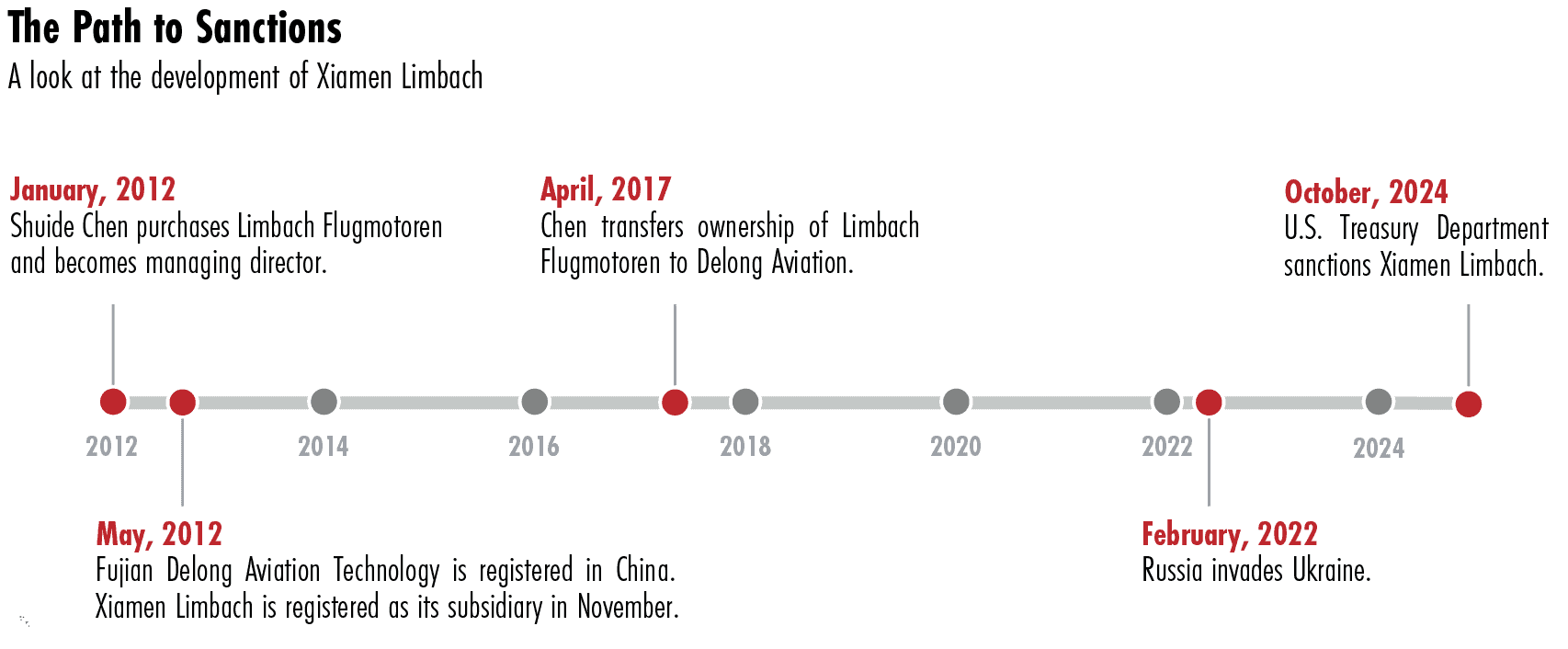
In addition to their shared corporate owner, the websites of Xiamen Limbach and Limbach Flugmotoren — limbach.cn and limflug.de — are nearly identical: they contain the same logo, homepage image, and large red “start” button that triggers a dropdown menu. Both sites offer L550E engines.

A Chinese ICP number, issued by China’s Ministry of Industry and Information Technology, confirms that limbach.cn is registered to Xiamen Limbach. The address listed on the Chinese site matches the official registration address for Delong Aviation, according to Wirescreen.
Limbach Flugmotoren did not respond to requests for comment. The company’s registration in Germany was active as of last month, according to the national business registry.
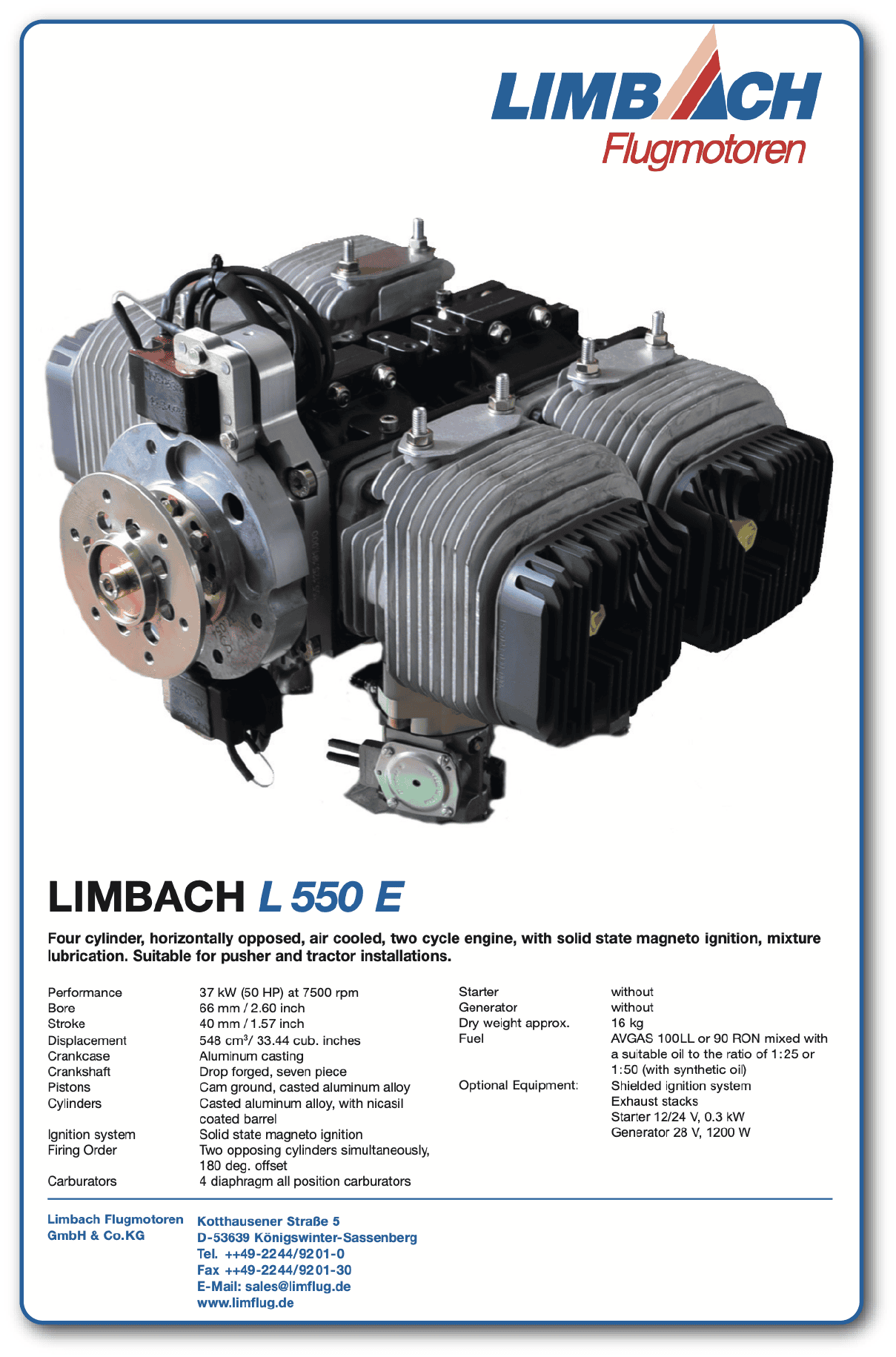
China earlier this year announced stricter export controls on domestically produced drones, including a prohibition on all civilian drones that are used for “military purposes,” a policy which came into effect on September 1. But Xiamen Limbach appears to still be selling the L550E engine online, for nearly $18,000, through a site called made-in-china.com, which describes itself as “committed to tapping business opportunities for Chinese suppliers and overseas buyers.”
While the company has in the past touted the L550E for non-military uses, the engine’s short 100-hour total lifetime means it has limited utility aside from powering drones, says David Albright, a former UN weapons inspector who now runs the Washington-based Institute for Science and International Security. “It’s a drone engine,” he says.
It is unclear whether the German authorities have taken any action over the ties between Xiamen Limbach and Limbach Flugmorten. A spokesperson for Germany’s Federal Ministry for Economic Affairs and Climate Action, which houses its investment screening office, said it is “not allowed to provide any information on possible individual investment screening cases with regard to trade and business secrets.”
A spokesperson for the U.S. Treasury Department declined to comment on specific cases, but said it “is committed to cutting off the flow of goods and money going to Russia in service of its illegal and immoral war in Ukraine.”
“We have been clear about the fact that the PRC government has failed to adequately stem the flow of goods going from China to Russia to support Russia’s defense industrial base and that they have a responsibility to ensure its companies are not providing lethal assistance to Russia,” the spokesperson added.
News of the sanctions against Xiamen Limbach has come amid ongoing debate in Western countries over support for Ukraine in its fight against Russia. U.S. President Joe Biden last week made a short visit to Germany where he met with Chancellor Olaf Scholz, during which both men reaffirmed their backing for Ukraine.
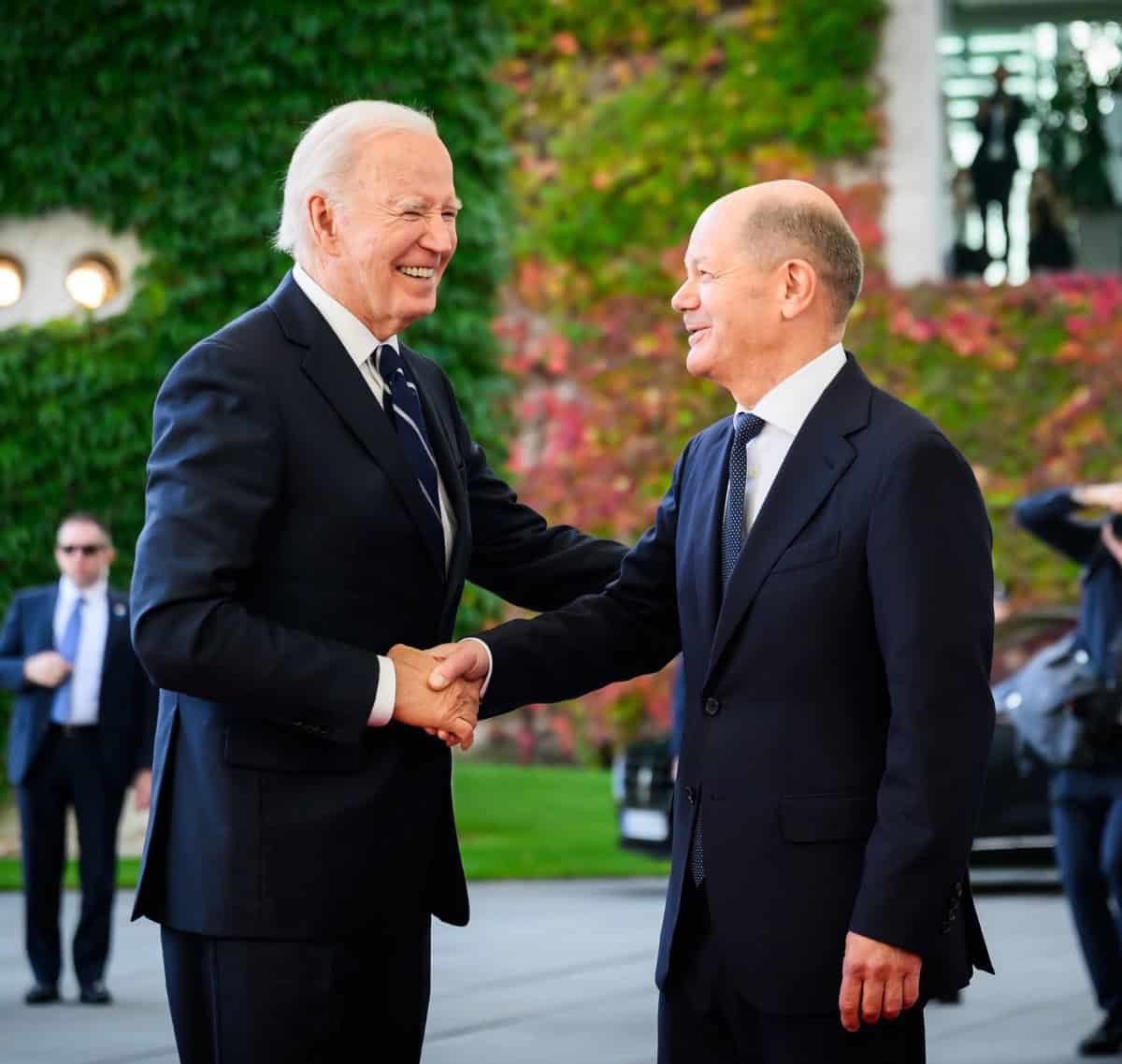
Yet while the German government has spent heavily on military and other support for Kiev, it has faced criticism — including from Ukraine’s leader Volodymr Zelensky — for not providing certain weapons, such as its long-range Taurus missiles. Scholz has also been under fire both inside and outside Germany for adopting a relatively accommodative stance towards Beijing. Earlier this month, Germany joined just four other countries in voting against European Union proposals to impose tariffs on electric vehicle imports from China.
“The logic is don’t rock the boat with the Chinese when we’re already in trouble with the Russians,” says Janka Oertel, director of the Asia program at the European Council on Foreign Relations in Berlin. “What they’re trying to do is close their eyes and make the problem go away.”
“It is shameful that Europeans have to rely on and wait for the U.S. to sanction companies,” she adds.
In 2012, no one in the German government was worrying about Chinese acquisitions. On the contrary, Chinese firms were seen as saviors for companies like Limbach that were struggling to survive.
Noah Barkin, a senior advisor with the Rhodium Group
Early in the 2010s, German concerns about Limbach Flugmotoren centered more on its financial viability than its connection to China. The company, based in the west German town Königswinter, was then owned by Peter Limbach, whose father had founded it in 1963. The younger Limbach had been preparing to close the family firm: But in November 2011 he announced in a letter to customers that Shuide Chen would “purchase all equity of Limbach Flugmotoren.” The company would stay open, and Limbach was to stay on as technical advisor. By January 2012, Chen had taken over as managing director.
“After the sale [I] served Limbach Flugmotoren as a consultant in engine design and have helped finding Chinese suppliers,” Limbach said in a LinkedIn message to The Wire. “Later Limbach Flugmotoren was sold to a newly founded Chinese corporation. I do not know how Xiamen Limbach affiliated with the new company and do not know about their business activities.”
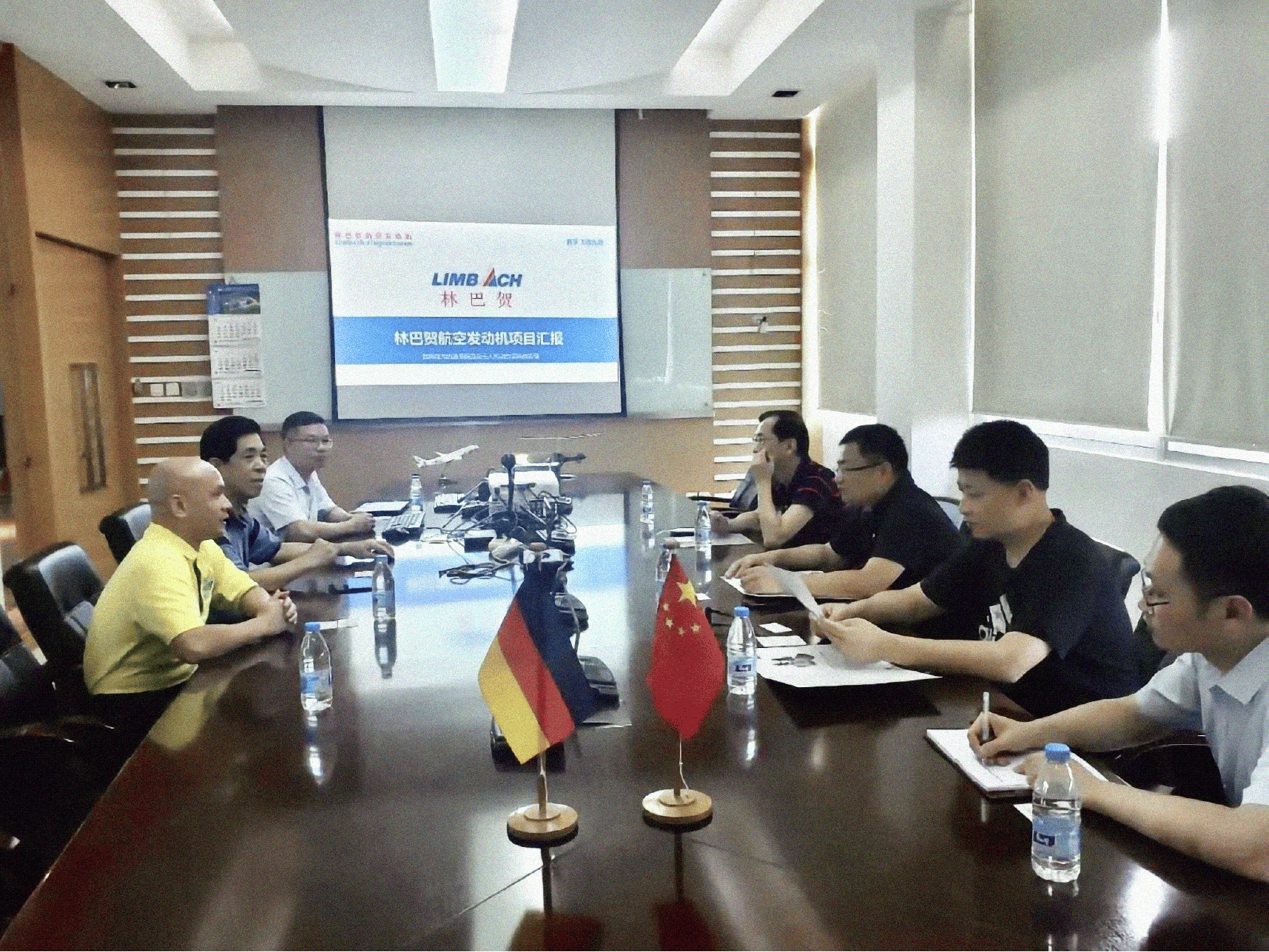
“In 2012, no one in the German government was worrying about Chinese acquisitions,” Rhodium’s Barkin says. “On the contrary, Chinese firms were seen as saviors for companies like Limbach that were struggling to survive.” Indeed in the following year, 2013, a subsidiary of Chinese state-owned defense company AVIC acquired another German firm, Thielert Aircraft Engines GmbH, rescuing it from bankruptcy.
According to LinkedIn and Limbach Flugmotoren’s website, Chen remains the managing director of Limbach Flugmotoren.
“I wanted to take over a German company that had know-how in the production of engines,” he said in a 2019 interview with the Bonn/Rhine-Sieg Chamber of Commerce and Industry.
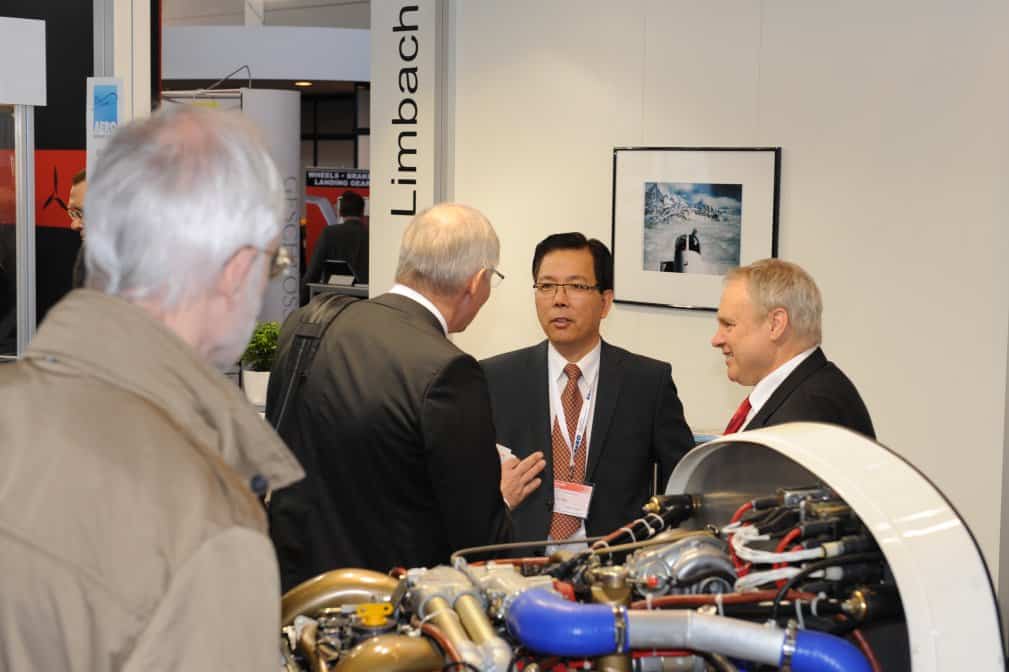
Chinese-language media and local government press releases do not distinguish between Chen’s acquisition and Delong Aviation’s, often referring to the parent company’s 2012 purchase of Limbach Flugmotoren. Photos of men who appear to be Chen and Peter Limbach are featured on the Xiamen Limbach website. Chen’s relationship with Delong Aviation remains unclear, but a man with the same surname is the Chinese company’s beneficial owner, according to Wirescreen; relatives and associates of Chinese beneficial owners often acquire overseas assets before the Chinese company takes over.
Chen has family in Xiamen, Peter Limbach told The Wire. Chen did not respond to LinkedIn messages seeking comment.

Noah Berman is a staff writer for The Wire based in New York. He previously wrote about economics and technology at the Council on Foreign Relations. His work has appeared in the Boston Globe and PBS News. He graduated from Georgetown University.

